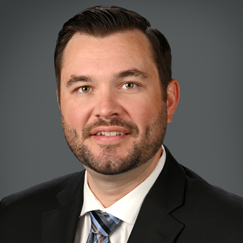If you’ve ever rolled over in bed and felt a twinge in your shoulder, or noticed pain when reaching for something overhead, you’re not alone. Shoulder discomfort is one of the most common orthopedic complaints—and while it’s often caused by simple overuse or strain, sometimes it’s a sign of something more serious.
At Plano Orthopedic & Sports Medicine Center, we help patients from Plano, Frisco, and McKinney find relief from shoulder pain through accurate diagnosis and personalized, non-surgical treatment.
Everyday Causes of Shoulder Pain
Many cases of shoulder pain start with daily habits or repetitive motions that gradually irritate the joint. Common examples include:
-
Overuse and repetitive movement: Reaching overhead, lifting, or certain sports (like tennis, swimming, or baseball) can strain shoulder muscles and tendons.
-
Poor posture: Slouching or hunching can create muscle imbalances that lead to shoulder and neck discomfort.
-
Sleeping position: Resting directly on one shoulder or sleeping with your arm overhead can compress soft tissues over time.
-
Weak supporting muscles: Weakness in the rotator cuff or upper back muscles can make the shoulder joint work harder than it should.
Addressing these causes early with stretching, strengthening, and rest can prevent more serious injury later.
When Shoulder Pain May Signal an Underlying Injury
If your shoulder pain persists for more than a few days—or worsens with movement—it could point to an orthopedic condition such as:
-
Rotator cuff tendinitis or tear: Caused by inflammation or small tears in the tendons around the shoulder joint.
-
Shoulder impingement: When soft tissue becomes pinched during arm movement, causing sharp pain when lifting overhead.
-
Frozen shoulder (adhesive capsulitis): Gradual stiffness that limits range of motion, often following injury or immobilization.
-
Biceps tendinitis: Pain or tenderness in the front of the shoulder that worsens with lifting or reaching.
-
Minor dislocation or instability: The feeling that your shoulder might “slip out” of place after repetitive strain or sports injury.
These conditions often respond well to early, conservative care—but delaying evaluation can lead to worsening stiffness, inflammation, or loss of function.
At-Home Relief Tips
For mild shoulder soreness:
-
Rest and avoid painful movements.
-
Apply ice for 15–20 minutes several times a day.
-
Use over-the-counter anti-inflammatory medications as directed.
-
Practice gentle stretching once pain begins to ease.
If pain persists beyond a few days or limits your ability to reach, lift, or sleep comfortably, it’s time to seek professional evaluation.
When to See an Orthopedic Specialist
See a doctor if you experience:
-
Persistent pain lasting more than a week.
-
Pain that interferes with work, exercise, or daily activities.
-
Limited range of motion or shoulder weakness.
-
Swelling, clicking, or popping sensations.
-
Shoulder pain following a fall or sports injury.
Our physicians at Plano Orthopedic & Sports Medicine Center offer on-site imaging, therapy, and customized non-surgical treatments to get you moving again safely.
Personalized Shoulder Care in Plano, Frisco, and McKinney
Whether your shoulder discomfort stems from overuse, arthritis, or an athletic injury, the experts at POSMC are here to help. We offer advanced, non-surgical options—including physical therapy, ultrasound-guided injections, and tailored rehabilitation programs—to relieve pain and restore function.
If you’re ready to find relief from shoulder pain, contact Plano Orthopedic & Sports Medicine Center today to schedule an appointment at one of our convenient locations serving Plano, Frisco, and McKinney, Texas.
Dr. Randal L. Troop
Shoulder, Knee and Sports Medicine
View Bio
Dr. Michael S. Howard
Shoulder, Elbow and Upper extremity
View Bio
Dr. John E. McGarry
General Orthopedics, Shoulder, Knee and Sports Medicine
View Bio
Dr. Jonathan D. Ringenberg
Shoulder, Knee and Sports Medicine
View Bio




